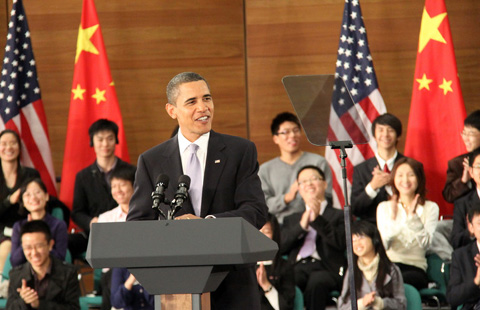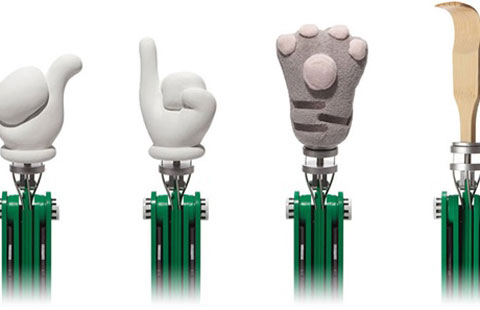Polls show wide opposition to Abe's plans
By Zhang Yunbi (China Daily) Updated: 2014-04-22 07:22
New poll numbers show widespread opposition in Japan to the Cabinet's plan to exercise the right of collective self-defense.
Leading Japanese newspaper Mainichi Shimbun conducted a nationwide survey over the weekend over Tokyo's plan to change the interpretation of the country's Constitution to allow Japan to intervene militarily if an ally were attacked.
According to the poll, only 12 percent of the Japanese public supported "complete permission" for collective self-defense, while 38 percent said the Constitution "should not permit" it. Another 44 percent said they support "limited permission". The remainder had no opinion or didn't know.
A similar poll by Japan's Nippon Television from April 11 to 13 showed that 48 percent said they "would not support" the government's attempt to change the interpretation of the postwar pacifist Constitution, while 35 percent said they would.
The figure was echoed a recent Kyodo News Agency poll in which 52.1 percent of the public opposes changing the interpretation of the constitution.
Discussions have been heated within Japan in the past week over relaxing the ban on collective self-defense.
Kyodo reported on Wednesday that Tokyo is considering revising the Self-Defense Forces Act to allow it to mobilize the country's military in the event that a close ally comes under military attack.
"Potential allies would include not only the United States, Japan's closest ally, but also Australia and Southeast Asian countries that (Prime Minister Shinzo) Abe, since taking office in December 2012, has been trying to bolster security cooperation with to cope with China's growing maritime assertiveness," Kyodo said.
Osamu Akiyama, a former Cabinet Legislation Bureau director-general, criticized the change of government interpretation as a practice that undermines the Constitution.
"Once a precedent is set, other provisions will possibly be impacted. This will give way for official interference in freedom of speech and the separation of religion from politics, which will be dangerous," Akiyama said in an interview with Kyodo.
On a television show recorded on Friday and aired on Sunday by Japan's YTV, Abe said he believes he is "capable" of changing the government interpretation of the Constitution, Japan's Jiji Press news agency reported.
The legal-affairs veteran criticized the policy campaign to lift the constitutional ban, led by an advisory panel on security affairs, most of whose members - hawkish officials and scholars - are believed to be close to Abe.
"Gathering individuals who support the opinion of oneself for boosting progress, generally speaking, violates legal procedures," Akiyama said.
Japanese Chief Cabinet Secretary Yoshihide Suga confirmed on Saturday that seeking limited permission for collective self-defense will be "a major topic" in parliamentary discussions in May.
He justified the necessity of bolstering the US-Japan military alliance by blaming China's "double-digit defense budget annual increase".
zhangyunbi@chinadaily.com.cn
(China Daily 04/22/2014 page11)
- Japan PM sends offering to Yasukuni Shrine
- Japan minister at shrine honoring war criminals
- S. Korea denounces Japanese minister's visit to war shrine
- China protests Japanese minister's visit to war shrine
- Abe's shrine visit not constructive: US
- Shrine offers sanctuary to Abe's politics as PM kowtows to right-wingers










